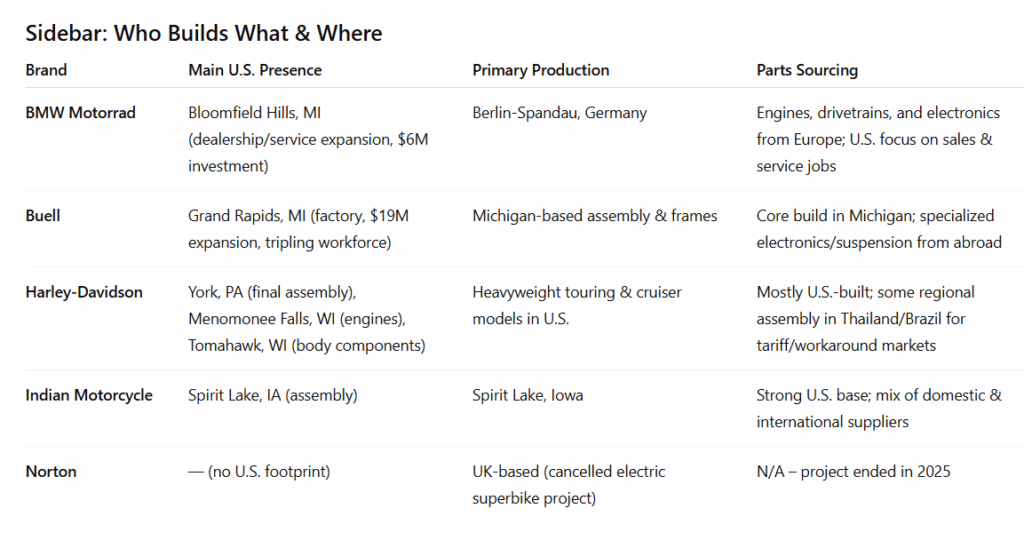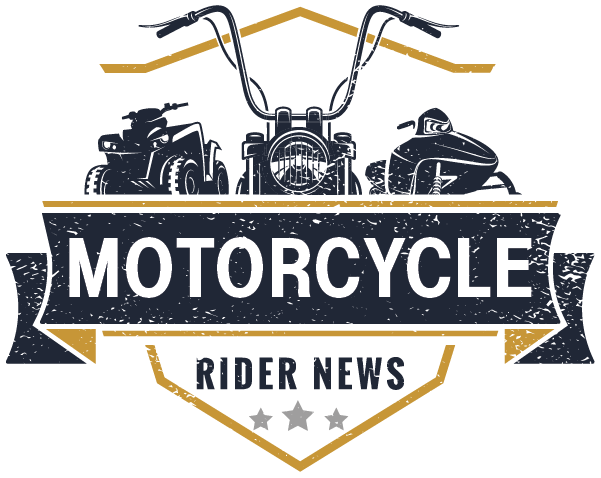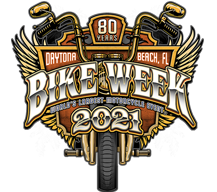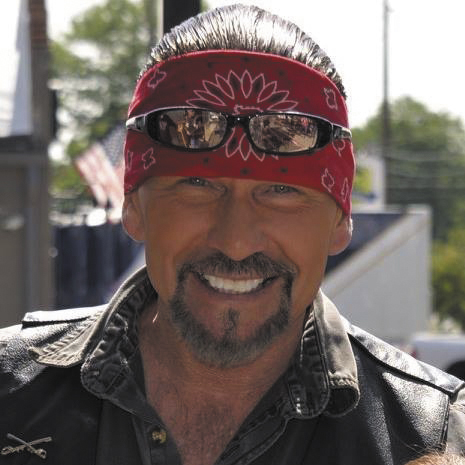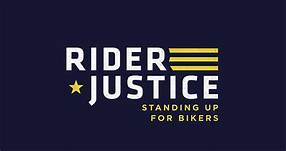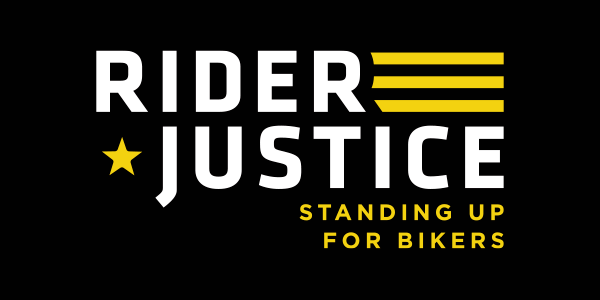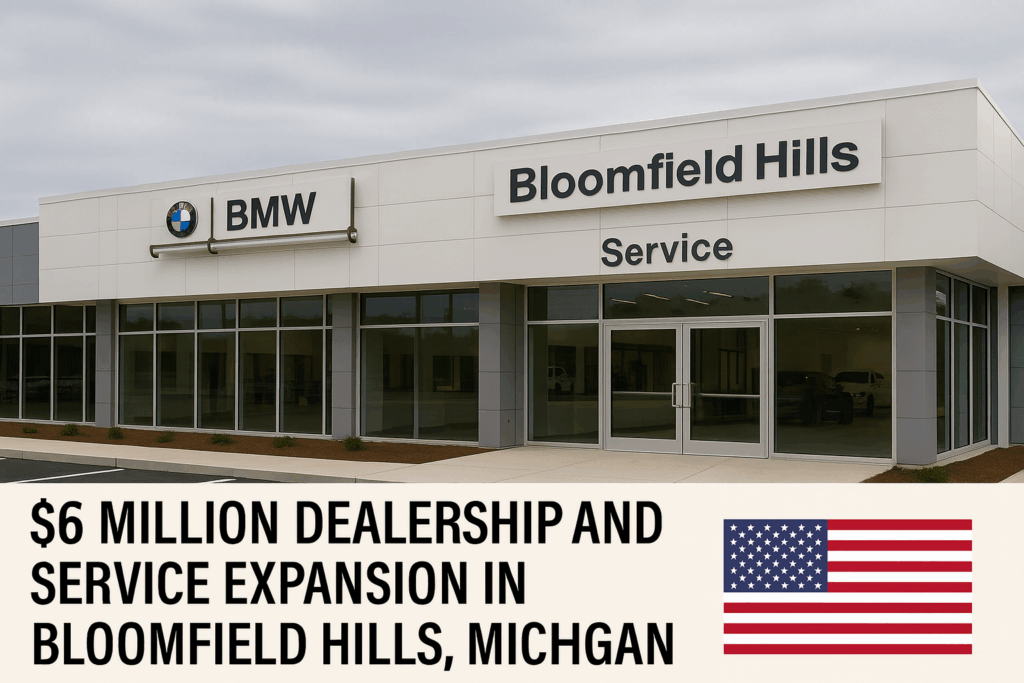 A Year of Contrasts in Motorcycling
A Year of Contrasts in Motorcycling
The motorcycle world in 2025 is at a fascinating crossroads. On one hand, manufacturers are racing toward electrification and futuristic design; on the other, riders are celebrating the revival of American iron and the pride that comes with bikes built in U.S. factories. This year, it’s not just about what we ride — it’s about where those machines are built and what they represent for the future of motorcycle culture.
BMW: Electric Innovation Meets U.S. Investment
BMW has pushed the envelope with its Vision CE self-balancing electric scooter — a futuristic concept that looks like it rolled off a sci-fi set. While its core production remains in Germany, BMW doubled down on U.S. roots this year, announcing a $6 million dealership and service expansion in Bloomfield Hills, Michigan. This project is expected to create dozens of jobs, strengthening BMW’s commitment to American riders even as its parts and assembly stay predominantly European.
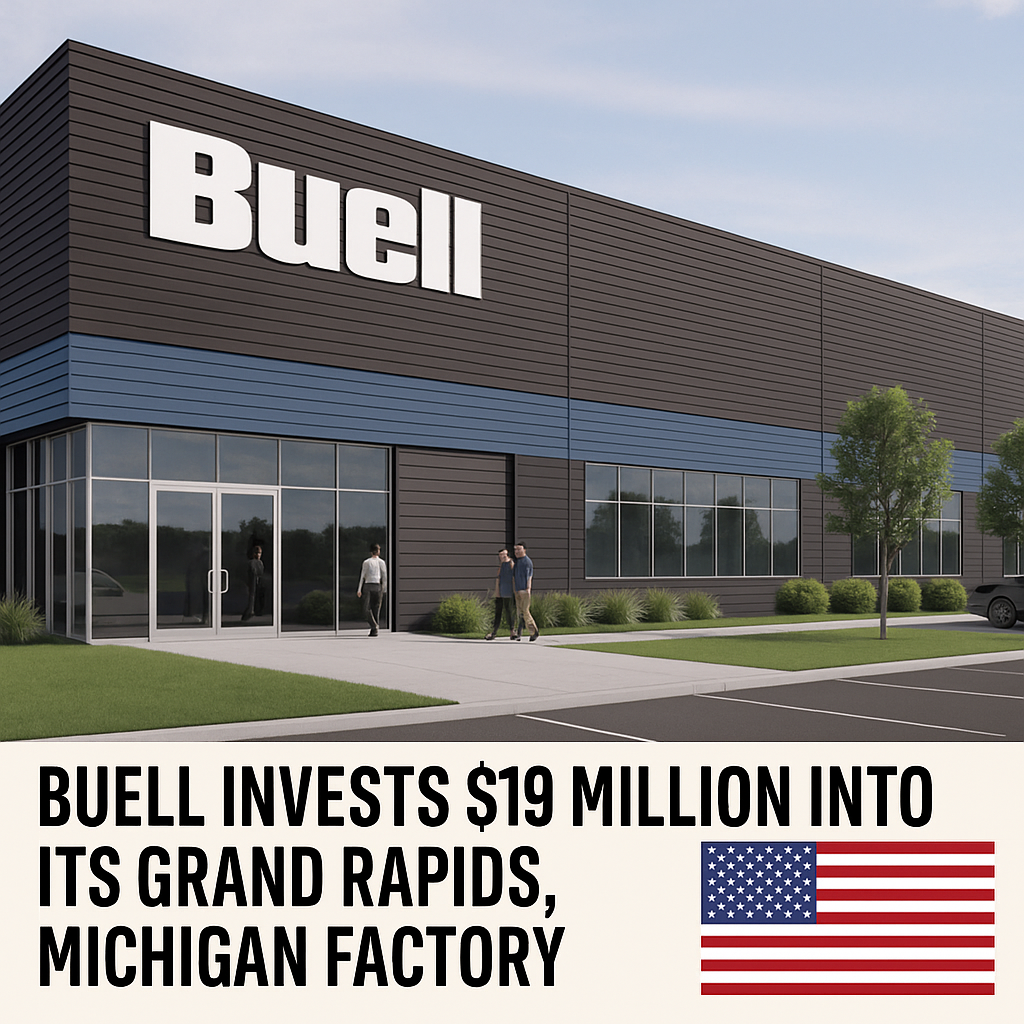 Buell: An American Comeback Story
Buell: An American Comeback Story
Few stories capture the “metal revival” spirit more than Buell. Once left for dead, the brand is roaring back with its Super Cruiser, a motorcycle so hotly anticipated that pre-orders exceeded expectations. To meet demand, Buell is investing $19 million in its Grand Rapids, Michigan, factory and plans to triple its workforce.
Most of Buell’s assembly and frame production remains proudly U.S.-based, though like many manufacturers, the company sources some specialized components — such as advanced electronics and suspension — from abroad. Still, the message is clear: Buell is betting big on building bikes in America.
Harley-Davidson: Holding the Line
For Harley-Davidson, American manufacturing isn’t a comeback — it’s a tradition. The company continues to anchor its production at York, Pennsylvania (final assembly), Menomonee Falls, Wisconsin (engines), and Tomahawk, Wisconsin (body components). These plants remain the heart of Harley’s heavyweight lineup.
While Harley uses regional facilities in Thailand and Brazil to avoid tariffs and reach global markets, its U.S. workforce and supply chains remain essential. The brand is balancing heritage and global strategy while preparing for a leadership transition in late 2025, when new CEO Artie Starrs takes the helm.
Indian Motorcycle: Spirit Lake Pride
Indian Motorcycle, owned by Polaris, continues its all-American production out of Spirit Lake, Iowa. Beyond building bikes, Indian invests in riders — hosting nationwide demo events, such as the “Ride With Us” community days, where test rides also support charitable causes. Their model lineup balances heritage cruisers with performance machines, proving that American craftsmanship and community engagement go hand-in-hand.
Norton: A Lesson in Retreat
Across the Atlantic, Norton provides a cautionary tale. In 2025, the UK manufacturer cancelled its electric superbike project, citing weak demand and high costs. While it leaves the company searching for its next chapter, Norton’s move underscores the uncertainty that remains in the global electric motorcycle market — even as competitors charge ahead.
Racing Glory and New Frontiers
It hasn’t all been about factories and strategy. On the racing front, Michael Dunlop made history with record-breaking wins at the Isle of Man TT and North West 200, cementing his place among the sport’s greatest legends. Meanwhile, MotoGP is introducing an International Bagger Series, featuring Harley-Davidson and other big-twin machines in a racing format once considered unthinkable. Alongside new engine and tire rules, this shift highlights how racing, like manufacturing, is adapting to changing times.
Electric Dreams, Metal Revivals
Taken together, 2025 marks a turning point. BMW is showcasing the electric future to riders while investing in U.S. communities. Buell and Harley-Davidson are deepening American production footprints. Indian is doubling down on culture and community. Norton has bowed out of the electric race, while global supply chains highlight both challenges and opportunities.
The bigger picture? Motorcycles are more than machines — they’re symbols of pride, innovation, and heritage. As electric dreams meet metal revivals, riders across the nation can take pride not only in the bikes they ride, but in the factories, workers, and culture that make them possible.